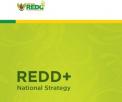- Home
- About
- Campaigns
- Regions
- Themes
- Agrofuels
- Climate justice
- Coastal communities and fisheries
- Disasters
- Economy & debt
- Energy
- Foreign investment
- Forests & forest fires
- Human rights
- Indigenous Peoples
- International Financial Institutions
- Land and food security
- Laws & regulations
- Mining, oil & gas
- Plantations
- Politics & democracy
- REDD
- Regional autonomy
- Transmigration
- Water and dams
- Women
- Publications
- Links
- Contact
Campaign
- Climate Justice and sustainable livelihoods (29)
- Agrofuels and oil palm plantations (19)
- MIFEE (6)
- Coal (3)
- BP - Tangguh (3)
Region
- Indonesia (162)
- Sumatra (97)
- Java, Madura & Bali (25)
- NTT & NTB (12)
- Kalimantan (81)
- Sulawesi (35)
- Maluku (9)
- Papua (69)
- Europe/UK (58)
- International (89)
Newsletter articles

DTE publications







